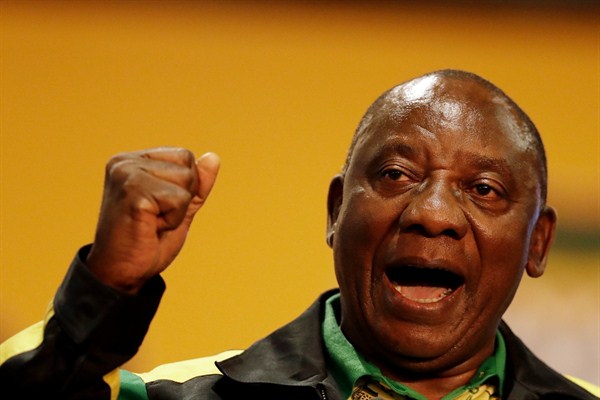After a decade of Jacob Zuma’s leadership of the African National Congress, or ANC, and more than eight years of him as South Africa’s president, it was hardly surprising that Cyril Ramaphosa’s election to the ANC presidency on Dec. 18 was almost universally welcomed beyond the ranks of the ruling party itself. Zuma’s time in power has been characterized by corruption and dysfunctional governance.
However, despite the surge of enthusiasm for Ramaphosa at home and abroad, reflected in an immediate rallying of the rand on global financial markets, the paradox of his election is that it was far from universally welcomed within the ANC itself. He won by a slender margin, securing 2,440 votes compared to 2,261 for his opponent, Nkosazana Dlamini-Zuma. Beyond the contest for the presidency itself, it was barely a victory at all, with the party’s top six positions and its ruling National Executive Committee effectively split between the two camps.
The suggestion that Ramaphosa’s victory would automatically lead to sweeping change and a definitive break with the venality and drift of the Zuma era should therefore be taken with a grain of salt. Given the qualified nature of Ramaphosa’s mandate, delivering such change is certainly still possible, but it will be a formidable challenge. To do so, Ramaphosa will have to offer bold and imaginative leadership and navigate his way through a dense thicket of obstacles.

